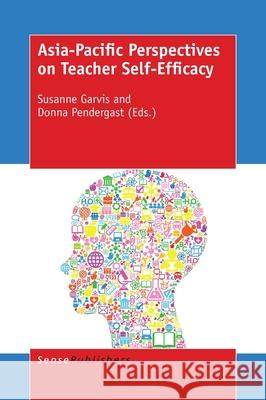Asia-Pacific Perspectives on Teacher Self-Efficacy » książka
Asia-Pacific Perspectives on Teacher Self-Efficacy
ISBN-13: 9789463005197 / Angielski / Miękka / 2016 / 154 str.
Asia-Pacific Perspectives on Teacher Self-Efficacy
ISBN-13: 9789463005197 / Angielski / Miękka / 2016 / 154 str.
(netto: 178,07 VAT: 5%)
Najniższa cena z 30 dni: 180,57
ok. 22 dni roboczych.
Darmowa dostawa!
In this book the editors have been able to provide a snapshot of current research being undertaken in the Asia-Pacific region in regards to teacher self-efficacy beliefs. This includes specific focuses on inclusive teaching, professionalism, subject domains, collective efficacy as well as specific contexts of early childhood education and care, primary schools education, special needs schools and teacher education. This allows the reader to begin to develop an understanding about the complexity of teacher self-efficacy as well as the development and relationship between self-efficacy and other theoretical constructs and concepts. The book begins with an overall summary of research in the Asia-Pacific region before moving to a specific focus on research in different countries. All of the chapters also provide hope to the reader about the possibilities of understanding and supporting teachers and schools beliefs to enhance teacher behaviour. Through the implementation of teacher self-efficacy beliefs into educational contexts, teacher education programmes and professional development programmes, there is strong hope that the outcomes of education systems in supporting all students in their learning can be achieved. By allowing teachers to develop their own sources of efficacy and supporting these through all stages of career development, all children can be supported in their own learning.
In this book the editors have been able to provide a snapshot of current research being undertaken in the Asia-Pacific region in regards to teacher self-efficacy beliefs. This includes specific focuses on inclusive teaching, professionalism, subject domains, collective efficacy as well as specific contexts of early childhood education and care, primary schools education, special needs schools and teacher education. This allows the reader to begin to develop an understanding about the complexity of teacher self-efficacy as well as the development and relationship between self-efficacy and other theoretical constructs and concepts. The book begins with an overall summary of research in the Asia-Pacific region before moving to a specific focus on research in different countries. All of the chapters also provide hope to the reader about the possibilities of understanding and supporting teachers and schools beliefs to enhance teacher behaviour. Through the implementation of teacher self-efficacy beliefs into educational contexts, teacher education programmes and professional development programmes, there is strong hope that the outcomes of education systems in supporting all students in their learning can be achieved. By allowing teachers to develop their own sources of efficacy and supporting these through all stages of career development, all children can be supported in their own learning.











